Faculty Directory
Faculty
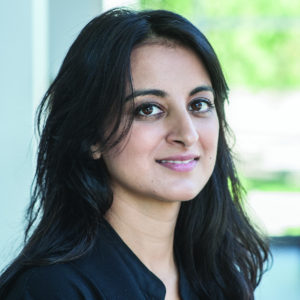
Aziza Ahmed
Aziza Ahmed is an expert in health law, reproductive health, race, criminal law and human rights. Her scholarship examines the legal, regulatory and political environments regarding health in US domestic law, US foreign policy and international law. She teaches Property Law, Reproductive and Sexual Health and Rights, and International Health Law: Governance, Development and Rights. Professor Ahmed was selected as a fellow with the Program in Law and Public Affairs (LAPA) at Princeton University for 2017-2018. She was combining a sabbatical and her fellowship, spending the academic year developing her work on law, feminism and science into a book with particular emphasis on how women’s health advocates shaped the AIDS response. She has also written extensively about abortion and reproductive health.
Prior to joining the School of Law, Professor Ahmed was a research associate at the Harvard School of Public Health Program on International Health and Human Rights. She came to that position after a Women’s Law and Public Policy Fellowship with the International Community of Women Living with HIV/AIDS (ICW). Professor Ahmed has also consulted with various United Nations agencies and international and domestic non-governmental organizations.
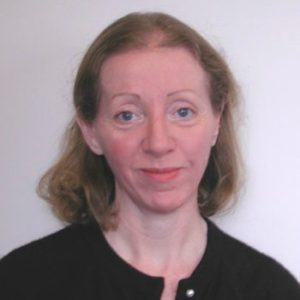
Sharon Begley
Sharon Begley is the senior science writer at STAT, the four-year-old life sciences publication of the Boston Globe. She was previously the science editor and columnist at newsweek, the science columnist at the Wall Street Journal, and the senior health and science correspondent at Reuters. She is also the author of three books on neuroscience and the recipient of numerous awards for her writing.
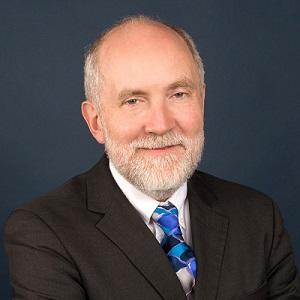
Matthew Bunn
Matthew Bunn is a Professor of Practice at the Harvard Kennedy School. His research interests include nuclear theft and terrorism; nuclear proliferation and measures to control it; the future of nuclear energy and its fuel cycle; and innovation in energy technologies. Before coming to Harvard, Bunn served as an adviser to the White House Office of Science and Technology Policy, as a study director at the National Academy of Sciences, and as editor of Arms Control Today. He is the author or co-author of more than 25 books or major technical reports (most recently Preventing Black-Market Trade in Nuclear Technology), and over 150 articles in publications ranging from Science to The Washington Post.
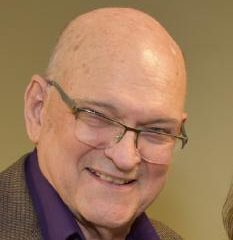
Lawrence Busch
Lawrence Busch is University Distinguished Professor Emeritus of Sociology at Michigan State University. He has been on the faculty at the Norwegian University of Science and Technology, Lancaster University (UK), and what is now the Institut de Recherche pour le Développement. He is (co)author or (co)editor of 15 books and 150 other publications. He is past president of both the Rural Sociological Society and the Agriculture, Food, and Human Values Society, a fellow of the American Association for the Advancement of Science, a Chevalier de l’Ordre du Mérite Agricole, an elected member of the Académie d’Agriculture de France and recipient of a doctor honoris causa from the Universidade Técnica de Lisboa. Dr. Busch’s current interests include the use of standards in public and private policy making, biotechnology and nanotechnology policy, agricultural science and technology policy, higher education in agriculture, and public participation in the policy process and the consequences of neoliberal policies for democratic governance. He is currently working on a book on markets.
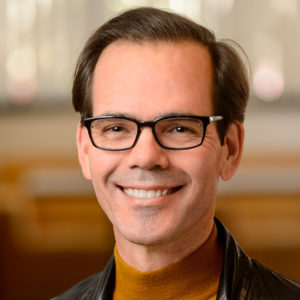
Professor Danielsen is Professor of Law and Faculty Director of the Program on the Corporation, Law and Global Society at Northeastern University School of Law. He received his J.D. from Harvard Law School in 1989. His research explores the complex role of the business firm in global governance, most recently through the study of global supply chains. Prior to joining the Northeastern faculty, Professor Danielsen was executive vice president and general counsel of Europe Online Networks S.A., a pioneer in the provision of broadband Internet and interactive multimedia services to consumers across Europe. Professor Danielsen was also a partner at Foley, Hoag LLP, where his practice focused on the representation of US and European public and privately held businesses with respect to corporate finance, mergers and acquisitions, strategic partnerships and joint ventures, content and technology licensing and corporate strategy.
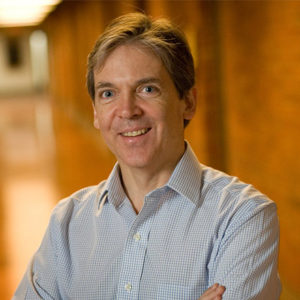
Stephen Hilgartner
Stephen Hilgartner studies the social dimensions and politics of contemporary and emerging science and technology, especially in the life sciences. His research focuses on situations in which scientific knowledge is implicated in establishing, contesting, and maintaining social order — a theme he has examined in studies of expertise, property formation, risk disputes, and biotechnology. His most recent book, Reordering Life: Knowledge and Control in the Genomics Revolution (MIT Press, 2017), examines how new knowledge and new regimes of control took shape during the Human Genome Project. Hilgartner’s book on science advice—Science on Stage: Expert Advice as Public Drama—won the Rachel Carson Prize from the Society for Social Studies of Science. He is also a co-editor of two recent books: Science & Democracy: Making Knowledge and Making Power in the Biosciences and Beyond (Routledge, 2015) and Handbook of Genomics, Health and Society (Routledge, 2018). Hilgartner is a Fellow of the American Association for the Advancement of Science.
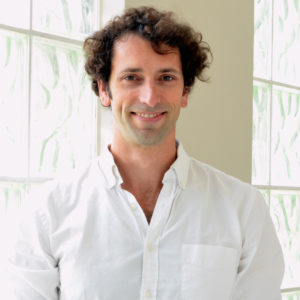
J. Benjamin Hurlbut
J. Benjamin Hurlbut, PhD is Associate Professor of Biology and Society in the School of Life Sciences at Arizona State University. He is trained in science and technology studies (STS) with a focus on the history of the modern biomedical and life sciences. Hurlbut studies the changing relationships between science, politics and law in the governance of biomedical research and innovation, examining the interplay of science and technology with notions of democracy, religious and moral pluralism, and public reason. He is the author of Experiments in Democracy: Human Embryo Research and the Politics of Bioethics (Columbia University Press, 2017) and co-editor of Perfecting Human Futures: Transhuman Visions and Technological Imaginations, (Dordrecht: Springer, 2016), as well as numerous articles and book chapters. He received an A.B. in Classics from Stanford University and a Ph.D. in the History of Science from Harvard University. He was a postdoctoral fellow in the program on Science, Technology and Society at the Harvard Kennedy School.
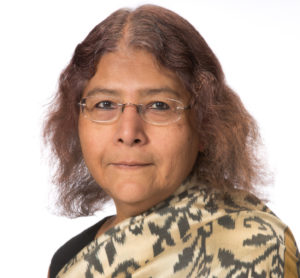
Sheila Jasanoff
Sheila Jasanoff is Pforzheimer Professor of Science and Technology Studies at the John F. Kennedy School of Government at Harvard University. She is affiliated with the Department of the History of Science and Harvard Law School. Previously, she was Professor of Science Policy and Law at Cornell University and founding chair of Cornell’s Department of Science and Technology Studies. At Harvard, she founded and directs the Kennedy School’s Program on Science, Technology and Society (STS). In 2002, she founded the Science and Democracy Network, an international community of STS scholars dedicated to improving scholarly understanding of the relationships among science, technology, law, and political power.
Jasanoff has been a pioneer in building the field of Science and Technology studies (STS). Through her many administrative, pedagogical, and editorial roles, she has helped define the field for a generation of younger scholars in STS. Her works on law and science, risk management, the comparative politics of regulation, and science in environmental decisionmaking count as basic texts on those topics.
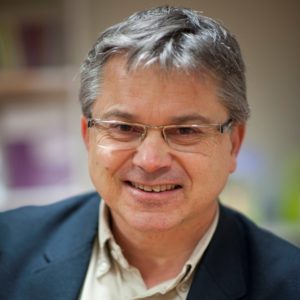
Pierre-Benoit Joly
Pierre-Benoit Joly, economist and sociologist, is Directeur de recherche at the National Institute of Agronomic Research (INRA) in France. He has been the Director of the IFRIS (French Institute for Studies of Research and Innovation in Society) and of Labex (Laboratory of Excellence) SITES from 2011 to 2014 and he is now the director of LISIS (Laboratoire Interdisciplinaire Sciences Innovations Sociétés).
His research is focused on the study of co-production of knowledge and social order. Drawing on a number of empirical studies on the interactions between science, democracy and the market,the aim is to analyze the contemporary transformations of scientific public space and new modes of governance of innovation and risk. P.B.Joly coordinated -or participated in several- European research projects in these areas. He has published six books, coordinated four special issues of journals and published more than 110 articles or book chapters.He lectures at the Ecole des Hautes Etudes en Sciences Sociales(EHESS).
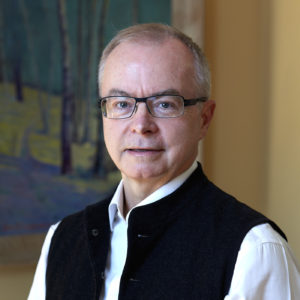
David Kennedy
David Kennedy is Manley O. Hudson Professor of Law and Faculty Director of the Institute for Global Law and Policy at Harvard Law School where he teaches international law, international economic policy, legal theory, law and development and European law. He joined the Harvard Law faculty in 1981 and holds a Ph.D. from the Fletcher School at Tufts University and a J.D. from Harvard. He is the author of numerous articles and books on international law and global governance. As a practicing lawyer and consultant, Professor Kennedy has worked on numerous international projects, both commercial and public. A member of the U.S. Council on Foreign Relations, he is past Chair and Member of the World Economic Forum’s Global Advisory Council on Global Governance. He has served as a member of the Asian Peace and Reconciliation Commission since 2012.
At Harvard, he served as Chair of the Graduate Committee and Faculty Director of International Legal Studies. He founded the European Law Research Center at Harvard in 1991 and served continuously as its Faculty Director. He has lectured as a Visiting Professor at numerous universities across the world. In 2008-2009, he served as Vice President for International Affairs, University Professor of Law and David and Marianna Fisher University Professor of International Relations at Brown University.
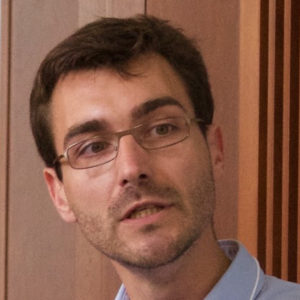 Brice Laurent Brice Laurent
Brice Laurent is senior researcher at the Center for the Sociology of Innovation of Ecole des Mines ParisTech, PSL Research University. He received in PhD in Science and Technology Studies in 2011, and has been studying issues related to science and democracy since then. He initially developed research works about emerging technologies and democratic experiments. His current research interests relates to the politics of object making in regulatory arenas, experimental governance in urban settings, and the politics of mineral resources. Brice teaches at Mines ParisTech and Sciences Po Paris. His publications include Les Politiques des Nanotechnologies (Charles Léopold Mayer, 2010) and Democratic Experiments (MIT Press, 2017). An edited volume entitled Labelling the economy. The politics of qualification in contemporary markets and co-edited with Alexandre Mallard is forthcoming in 2019 (Palgrave).
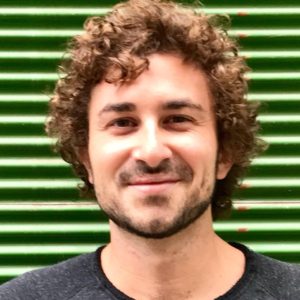
Vito Margiotta
Vito Margiotta is an AI entrepreneur and investor, a Googler, SingularityU alumni, and the founder of the non profit ML4Good.
His work focused exclusively on the development and commercialization of AI solutions that leverage on the Combined Human+Machine interaction and intelligence.
He is extremely passionate about the social impact of exponential technologies on society, and was recently appointed to the Forbes 30under30 European Tech list.
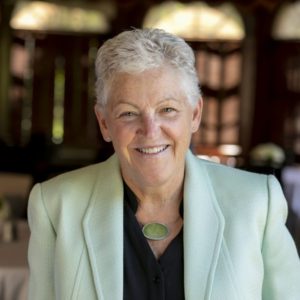
Gina McCarthy
McCarthy’s 35-year career in public service has been dedicated to environmental protection and public health. As Administrator of the U.S. Environmental Protection Agency under President Barack Obama, she was the nation’s leading advocate for common-sense strategies to protect public health and the environment, including efforts to address the challenge of climate change and ensure the protection of the country’s water resources. Her leadership led to significant federal, state, and local actions on critical issues related to the environment, economic growth, energy, and transportation. Since leaving Washington, McCarthy has been a fellow at Harvard’s Kennedy School of Government’s Institute of Politics and the Menschel Senior Leadership Fellow at Harvard’s T.H. Chan School of Public Health. McCarthy now serves as Professor of the Practice of Public Health in the Department of Environmental Health at Harvard’s T.H. Chan School of Public Health and Director of Harvard Chan’s Center for Health and the Global Environment, leading the development of the School’s strategy in climate science, health, and sustainability. McCarthy is also an Operating Advisor at Pegasus Capital Advisors, a private equity firm located in NYC that focuses its investments in companies that promote wellness and sustainability, and is a Member of the Board of Directors of Energy Foundation.

James J. McCarthy
James J. McCarthy is Harvard’s Agassiz Professor of Oceanography. From 1982 until 2002 he served as the Director of Harvard’s Museum of Comparative Zoology. He has worked on all the major oceans and several regional seas, and has published research papers on ocean production and climate cycles, ecosystem management and whale contributions to coastal ecology. He was the first chair of steering committee for the International Geosphere-Biosphere Programme, and the founding editor of the journal Global Biogeochemical Cycles. He led Working Group II for the third Intergovernmental Panel on Climate Change assessment. He also had major roles in the 2005 Arctic Climate Impact Assessment and the 2007 Northeast Climate Impacts Assessment. He served as president and chair of the Board of Directors for the American Association for the Advancement of Science (2008-10). He is a member of the Board of Directors for the Union of Concerned Scientists, and served as its chair from 2009-15. In 2012, he was appointed to the U.S. Arctic Research Commission. He has been elected a Fellow of the American Association for the Advancement of Science, a Fellow of the American Academy of Arts and Sciences, and a Foreign Member of the Royal Swedish Academy of Sciences. In 2018 he was a co-recipient of the Tyler Prize for Environmental Achievement
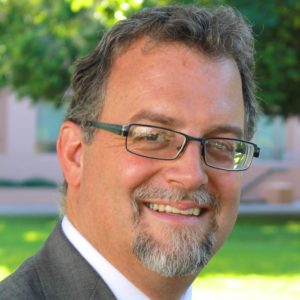 Clark Miller Clark Miller
Clark A. Miller is the Director of the Center for Energy & Society and a Professor in the School for the Future of Innovation in Society at Arizona State University. His most recent books, Designing Knowledge (2018) and The Weight of Light (2019), explore the use of STS as a framework for analyzing and informing the design of future sociotechnical systems. He has written extensively about the construction and use of knowledge in democratic politics, the globalization of science and scientific institutions, and governance of large-scale transformations in the relationships between technology and society.

Alondra Nelson
Alondra Nelson is an acclaimed sociologist, author, and researcher who explores questions of science, technology, and social inequality. Nelson is currently President of the Social Science Research Council and the Harold F. Linder Professor of Social Science at the Institute for Advanced Study in Princeton. Nelson is the author of two books, Body and Soul: The Black Panther Party and the Fight Against Medical Discrimination (2011) and The Social Life of DNA: Race, Reparations, and Reconciliation after the Genome (2016). Nelson holds a Ph.D. in American Studies from New York University. She has held faculty positions at Yale University and Columbia University. Nelson is presently Chair of the American Sociological Association’s Section on Science, Knowledge, and Technology. She is an elected Fellow of the American Academy of Political and Social Science and of the Hastings Center, and an elected Member of the Sociological Research Association.

Sebastian Pfotenhauer
Sebastian Pfotenhauer is Carl von Linde Assistant Professor of Innovation Research and head of the Innovation, Society and Public Policy Research Group at the TUM School of Management and the Munich Center for Technology in Society (MCTS). He is also the coordinator of the EU-Horizon2020 project SCALINGS (“Scaling up co-creation: Avenues and Limits for Integrating Society in Science and Innovation”) – a EUR 4 Million flagship initiative investigating use of new collaborative innovation formats such as living labs and pre-commercial procurement in robotics, autonomous driving, and urban energy systems across 10 countries. Sebastian’s research interests include regional innovation cultures and strategies; the global circulation of “best practice” models of innovation; the global governance of emerging technologies; co-creation and responsible innovation practices; and capacity-building for development. Before joining TU Munich, Sebastian was a research scientist and lecturer with the MIT Technology & Policy Program and the MIT Sociotechnical Systems Research Center, as well as a research fellow at the Harvard Program on Science, Technology and Society. He has served as consultant on innovation policy to various regional and national governments, as well as for the Organization for Economic Co-operation and Development in Paris, France. His work has appeared, among other outlets, in Research Policy, Social Studies of Science, Nature, the OECD Science, Technology and Industry Outlook, and Issues in Science and Technology. He holds an S.M. in Technology Policy from MIT and a PhD in Physics from the University of Jena, Germany, and has received post-doctoral training at MIT and Harvard.
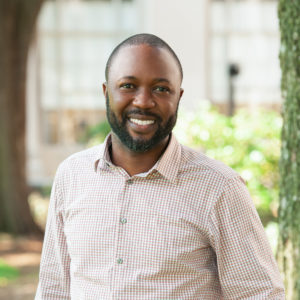
Ashley Smart
Ashley Smart is the associate director of the Knight Science Journalism Program at MIT and a senior editor at Undark magazine. He previously spent eight years as an editor and reporter at Physics Today magazine. Ashley was a 2015-16 Knight Science Journalism fellow and is a member of the advisory board of the Council for the Advancement of Science Writing.
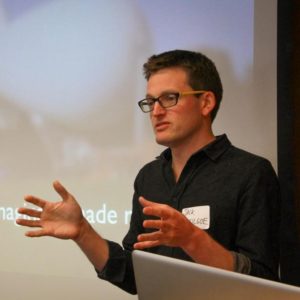
Jack Stilgoe
Dr Jack Stilgoe is an associate professor in Science and Technology Studies at University College London. He teaches and researches the governance of emerging technology. He is Principal Investigator of the Driverless Futures? Project, a three year social science project looking at the governance of self-driving cars. His new book, Who’s driving? New technologies and the collaborative state, will be published in Autumn 2019. He is also the author of Experiment Earth – Responsible innovation in geoengineering. He previously worked in science and technology policy at the Royal Society and the think tank Demos. He is a fellow of the Turing Institute and a Trustee of Involve, a public participation think tank.
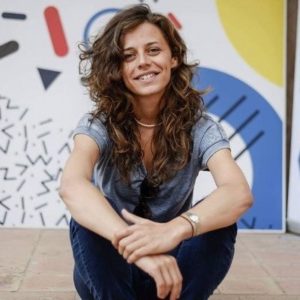
Alice Tomassini
Alice Tomassini is a Documentary Film Director. She was recently appointed to the Forbes 30under30 European Media list for her work on technology storytelling. Alice had many roles behind the camera, first on a feature length documentary on the birth of internet in Italy, and most recently on the production side of a secular documentary about the relationship between the church and social media, as well as a series of short documentaries on the social impact on technology. Alice’s current work explores how AI generated A/V content is threatening our beliefs in truth and in news sources.
|